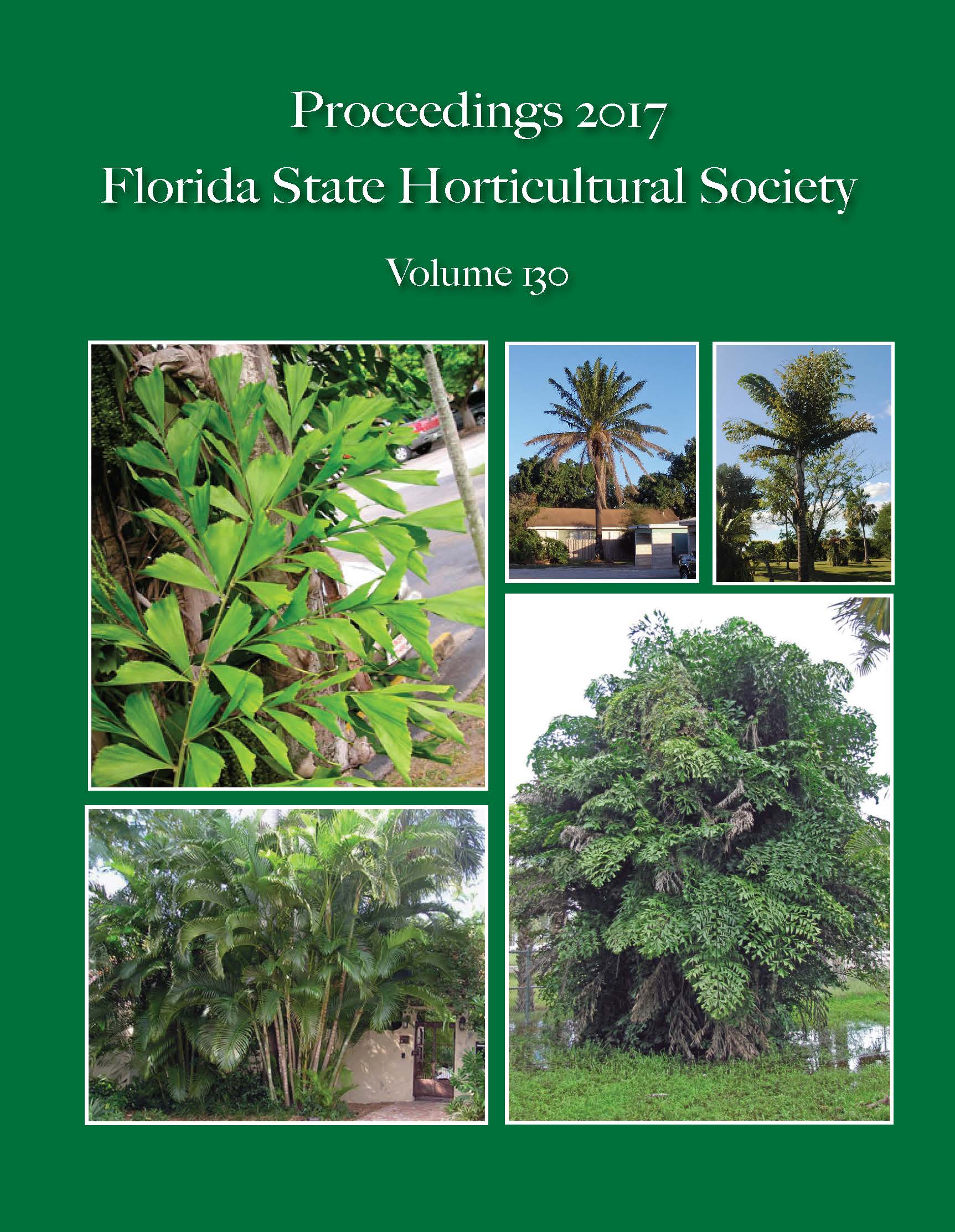Soil Microbial Product Interactions with HLB in Valencia/Swingle Trees over Three Seasons at Three Contrasting Sites in Florida
Abstract
Three field trials at three separate locations in Florida were designed to test the hypothesis that soil‑applied microbial products can mitigate the effects of huanglongbing (HLB) on citrus tree health and yield. There were six soil amend‑ment treatments: BioFlourish, EcoFriendly, Serenade, Quantum, and Aliette plus an untreated control applied to Valencia/Swingle Citrus sinensis trees at a central Ridge site with 19‑year‑old trees, at an East Coast site with 6‑year‑old trees, and at a Southwest Florida site with 11‑year‑old trees. Treatments were applied over three seasons (2014–2016) at recommended label rates, and a subset of trees within each treatment was also mulched annually with mature cow manure. At the Ridge site after three years of treatments, the Serenade‑treated trees had a higher visible disease index (DI) than the untreated control trees but the other treatments had intermediate DIs that did not differ from each other. All treatments had similar average cycle threshold (CT) values from PCR that were less than 30 (HLB positive) and there were no treatment effects on canopy volume, fruit yield, average fruit weight, or juice quality. At the East Coast site, all trees were HLB positive and no treatment CT values differed from the untreated control trees. Again, there were no treatment effects on canopy volume, fruit yield, DI, average fruit weight, or juice quality. At the Southwest Florida site, all treatment trees had average CT values that were greater than 30 (HLB negative). Aliette‑treated trees had higher CT than EcoFriendly‑treated trees, while the other treatments had intermediate CTs that did not differ from each other. BioFlourish‑ and Aliette‑treated trees had larger canopy volumes than the untreated control and Serenade‑treated trees but there were no treatment effects on DI or fruit yield. The mulch treatment increased yield at the Southwest Florida site but there were no significant effects of mulch at the other test sites. Overall, there were no consistent treatment effects on root density in the soil or on leaf mineral nutrition as all nutrient values were within optimum ranges. Thus, there were no positive effects of these soil microbial amendments on tree health and yield of HLB‑affected trees.

